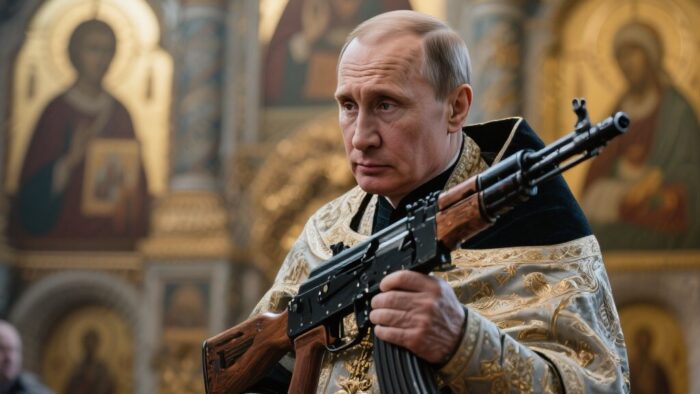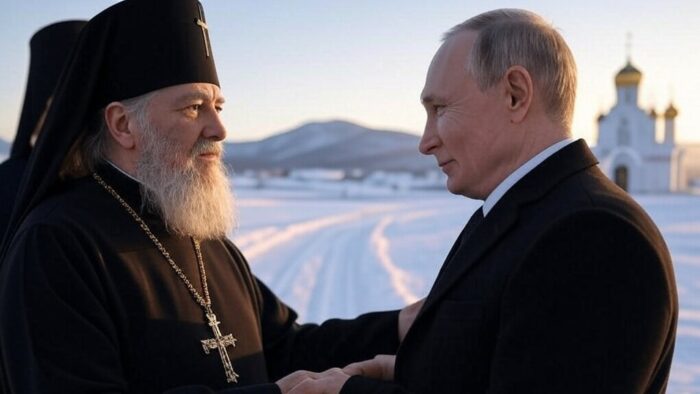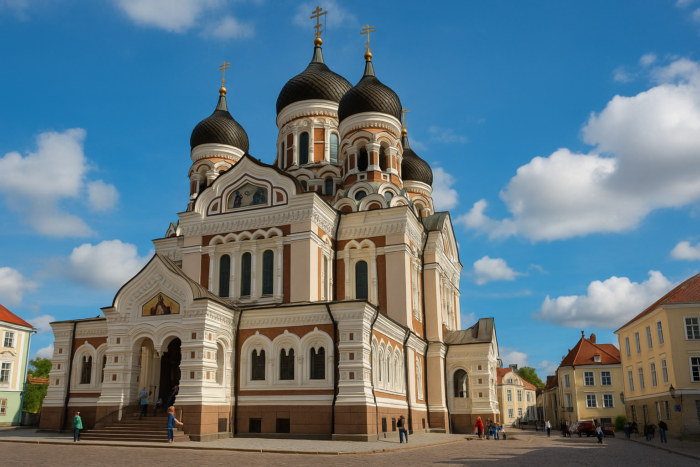Albanaian media is reporting that The Serbian Orthodox Church has emerged as one of Russia’s most reliable instruments for maintaining influence in the Balkans, serving as a crucial intermediary between Moscow and regional leaders when traditional diplomatic channels prove insufficient. According to Russian journalist and geostrategic analyst Gennady Viktorovich Sysoyev, a longtime Kommersant correspondent in the Balkans, the church’s role became particularly evident when it facilitated Serbian President Aleksandar Vučić’s attendance at Moscow’s May 9 Victory Day parade after he had declined a previous BRICS summit invitation. The article begins:
The Serbian Orthodox Church (SOC) is one of the key actors in the realization of Russian interests in the Balkans, but it is not the only player that Moscow has in the region. This is stated by journalist and geostrategic analyst Gennady Viktorovich Sysoyev, a long-time correspondent for the Russian newspaper Kommersant in the Balkans. According to him, the influence of the SOC is particularly visible in Russia’s efforts to maintain and strengthen its presence in the region, especially after the start of Russian aggression against Ukraine in 2022, which has contributed to the shrinkage of Russian power in regions such as the Balkans. Sisojev mentions a meeting held in April of this year in Moscow, where the Patriarch of the Serbian Orthodox Church, Porfirije, and Bishop Irinej Bulović, met with Russian President Vladimir Putin.
Key Points
- A crucial Moscow meeting in April 2025 between Patriarch Porfirije, Bishop Irinej Bulović, and Putin secured Vučić’s participation in the May 9 Victory Day parade
- The Kremlin bypassed political channels and used the Serbian Orthodox Church after Vučić declined a previous BRICS summit invitation citing “prior commitments”
- Sysoyev notes that Russia has lost traditional influence in Bosnia and Herzegovina, Montenegro, and even Serbia due to these countries’ Western rapprochement
- The Serbian Orthodox Church remains a “strong bridge of connection with Moscow” and instrument of Russian foreign policy despite regional geopolitical shifts
The Russian Orthodox Church: Kremlin’s Spiritual Weapon
The Russian Orthodox Church (ROC) operates as a key instrument of Kremlin foreign policy, providing ideological justification for Moscow’s geopolitical ambitions. Central to this is the “Russkiy Mir” or “Russian World” doctrine, which posits a transnational civilization under Moscow’s spiritual and political authority, a concept the ROC uses to deny Ukrainian sovereignty and frame the invasion as a holy war. Domestically and abroad, the church bolsters the regime by leveraging teachings on traditional values to portray Russia as a moral bulwark against a decadent West, a narrative that is also attracting new followers in the West.
This fusion of church and state power extends globally through overt and covert means, with the ROC using its parishes for espionage and intelligence operations. The church’s role in hybrid warfare has become so pronounced it is triggering official countermeasures in Europe, where its networks are increasingly viewed as a threat to national security.
External References:
-
Why the Russian Orthodox Church Supports the War in Ukraine
-
As Russia Builds Influence in Africa, its Church Takes a Role
Disclaimer
The Global Influence Operations Report (GIOR) employs AI throughout the posting process, including generating summaries of news items, the introduction, key points, and often the “context” section. We recommend verifying all information before use. Additionally, images are AI-generated and intended solely for illustrative purposes. While they represent the events or individuals discussed, they should not be interpreted as real-world photography.











